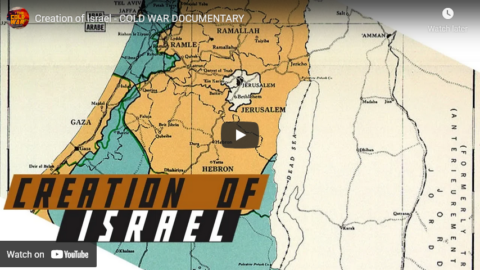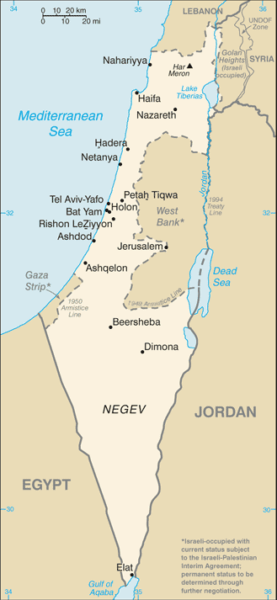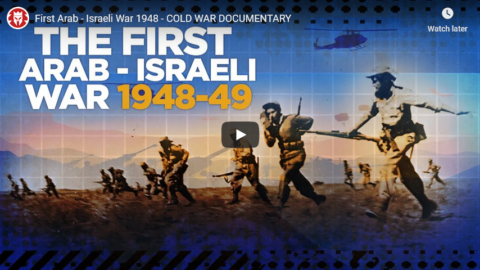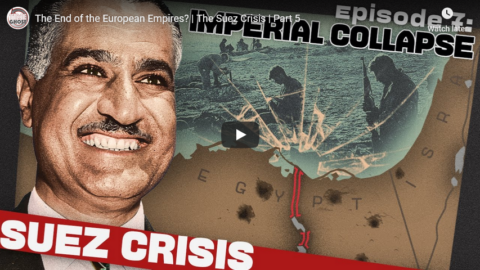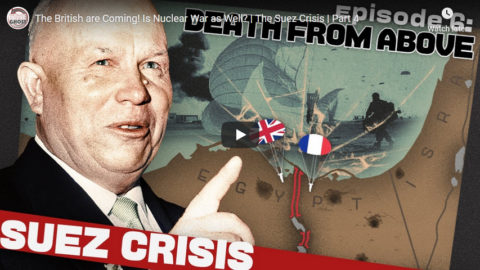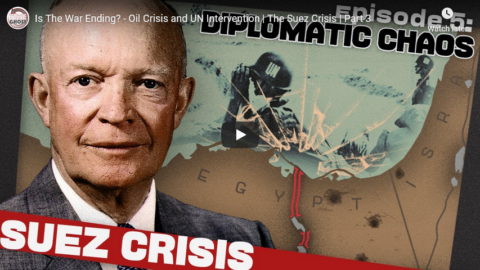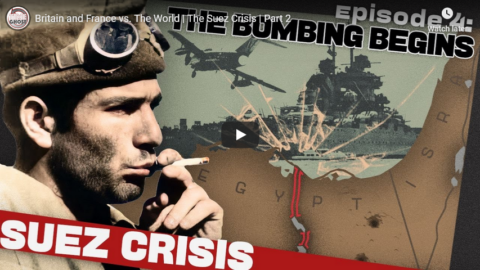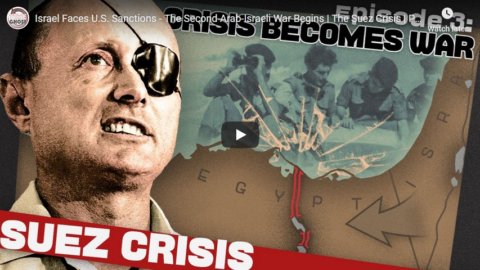Forgotten Weapons
Published 13 Aug 2017The UZI Submachine Gun: Examined is a newly published book this year by David Gaboury — long time owner and operator of the uzitalk.com forum. Until now there has not really been any substantive written reference material on the Uzi, but Gaboury has certainly changed that!
The Uzi has not really seen many major variations in its design beyond the Uzi/Mini Uzi/Micro Uzi scaling (and the semiauto and full auto variations of each), but it has lived two rather distinct lives. One is the Uzi as a global military arm, and the other is the Uzi as an American commercial product — and this book covers both in excellent detail.
On the military side, the book begins with a substantial chapter on the initial development of the Uzi and Israeli submachine gun trials. A remarkably wide variety of guns were considered by the Israeli armed forces, and the trial ultimately came down to two domestic designs. The influence of the Czech ZK-476 and SA vz 23/4/5/6 designs are well explained, and much of the mythology about where the design came from is dispelled. Gaboury makes good use of both original documentary sources and firsthand conversation with those who were involved at the time to tell this story.
With the gun accepted, in production, and becoming very popular with Israeli troops, international sales become a possibility. Gaboury covers the adoption of the gun by the Dutch armed forces, followed by the German and South African militaries — as well as the licensed production by FN. He also examines other copies and adaptations, including Croatian, Japanese, and Chinese.
The second half of the Uzi story is that of its sale in the United States (including the use by US security organizations including the Secret Service). This is a story every bit as complex and detailed as the international military use of the gun, as US legal changes in 1968, 1986, 1989, 1994, and 2004 all play a major role in dictating changes that must be made to the guns for import and sale. In particular, Gaboury has detailed chapters on the major sellers of Uzis in the US — Action Arms, Group Industries, and Vector Arms (as well as many other smaller players).
While there may not be many major variations of the Uzi, there are a multitude of smaller changes to individual parts in both design and production technique, and Gaboury covers these in remarkable detail. If there is a flaw to the book, it is not in lack of detail, but perhaps in a bit of dryness to the writing. The information is clearly presented, but not particularly engaging to the reader who is only mildly interested in the subject. This is a minor criticism, however, and the book is an outstanding reference for anyone who has, well, really any questions at all about the Uzi.
http://www.patreon.com/ForgottenWeapons
Cool Forgotten Weapons merchandise! http://shop.bbtv.com/collections/forg…
If you enjoy Forgotten Weapons, check out its sister channel, InRangeTV! http://www.youtube.com/InRangeTVShow
March 27, 2022
Book Review: The Uzi Submachine Gun Examined, by David Gaboury
November 13, 2021
Creation of Israel
The Cold War
Published 1 Jun 2019Our series on the history of the Cold War period continues with a documentary on the creation of Israel, Zionist movement, reactions and diplomatic maneuvers of other states and the build-up to first Arab-Israeli war
Consider supporting us on Patreon: https://www.patreon.com/thecoldwar
September 18, 2021
August 25, 2021
QotD: What Hamas says versus how western media reports what they said
“The illegitimate Zionist entity must be forced to end its occupation of all of Palestine, from Tel Aviv to Jericho.” Western Reporter: “So what you’re saying is that you support a peaceful 2-state solution.”
“We will kill the sons of pigs and apes like the great Hitler.”
Western reporter: “So what you’re saying is that you object to right-wing Israeli politicians like Netanyahu.”
“We want an Islamic state governed by sharia.”
Western reporter: “Democracy, one-person, one-vote, religious freedom for all. Got it.”
“We thank our great friends in Iran for their money, missiles, and bombs.”
Western Reporter: “Hamas insists on being a grassroots Palestinian movement not dependent on foreign support.”David Bernstein, “It must be frustrating being a Hamas spokesman”, Instapundit, 2021-05-22.
August 12, 2021
QotD: Ignoring the warnings
… on Dec. 7, 1941, a U.S. Army Air Force lieutenant was spending his first-ever shift with a radar unit atop some Hawaiian high ground. Radar was brand new technology, and the U.S. was still figuring out how to best use it. The poor lieutenant watched on a scope as a big blob of something approached the naval base. He assumed it was a bunch of friendly planes coming in from the U.S. — what else would it be, right? Besides, even if he had been worried, there was no established protocol to sound an alarm. Forty-some-odd years before the release of Ghostbusters, the poor lieutenant was living the iconic tagline — when there’s a big mass of planes flying toward your base, who ya gonna call? And so the lieutenant and his men could only watch Japan’s massively successful attack on the U.S. fleet, an attack that caught the American defenders totally unprepared, with sailors asleep in their racks and senior officers golfing or breakfasting. There had been some intelligence warnings that Japan was up to something, but no one guessed that an attack on Hawaii was imminent. Not even the guys who quite literally saw it coming.
Let’s jump forward a few decades: in 1973, Israeli military intelligence was fully aware of a huge build-up of men and weapons on its borders with Syria and Egypt. The mobilizations were impossible to hide — tens of thousands of troops, tanks, artillery, the whole apparatus of modern warfare was lining up across Israel’s borders. But Israel’s top military intelligence officer concluded that the build-up was intended to apply political pressure ahead of negotiations, not actually to prepare for an assault. Israel was militarily superior, after all, and had handily defeated the combined Arab armies before, including just six years prior. The Arabs simply wouldn’t dare try again. Right?
Wrong. They dared, Israel was caught totally by surprise, and the Jewish state came shockingly close to defeat and likely destruction.
Ideally, these kinds of mistakes — mistakes of preparedness, mistakes of erroneous conclusion — are studied, learned from and then never repeated. In the real world, of course, we tend to make the same mistakes over and over.
Matt Gurney, “How the COVID crisis broke our leaders’ minds”, The Line, 2021-04-23.
June 24, 2021
First Arab-Israeli War 1948 – Political Background – COLD WAR
The Cold War
Published 31 Aug 2019Our series on the history of the Cold War period continues with a documentary explaining the political background of the First Arab-Israeli War of 1948.
To learn about the military events of this conflict, go to the Kings and Generals channel
Consider supporting us on Patreon: https://www.patreon.com/thecoldwar
May 28, 2021
Tank Chats #108 | M48 | The Tank Museum
The Tank Museum
Published 23 Oct 2020Tank Museum Historian David Fletcher discusses the M48 “Patton”, an American first generation Main Battle Tank introduced in 1952. Throughout its service life, the M48 has been very successful and has seen service with many countries including the Americans in Vietnam and the Israel Defense Forces.
Support the work of The Tank Museum on Patreon: ► https://www.patreon.com/tankmuseum
Visit The Tank Museum SHOP & become a Friend: ► tankmuseumshop.orgTwitter: ► https://twitter.com/TankMuseum
Instagram: ► https://www.instagram.com/tankmuseum/
#tankmuseum #tanks
May 27, 2021
“Are you an ally of an all-powerful white supremacist, colonialist apartheid regime led by baby-killing oppressors, the likes of whose evil the world has never seen?”
Why, yes. Yes I am, Barbara Kay. And you should be too:
Nobody with eyes to see can press on with the myth that this is a political conflict. The anti-Semitism that lurks behind obsessive Israel-bashing can no longer be credibly passed off as “criticism of Israel”. It’s not about Israel and never was. It’s about those maddening Jews. Wherever they are, they make trouble. What is it with their stubborn insistence on their right to live and flourish in their homeland, when they know they are not wanted there?
Never mind the historical facts surrounding Jews’ indigenous rights, or the painstaking legal journey to national sovereignty (along with other newly minted Middle Eastern countries like Iraq and Syria, both of which have appalling human rights records, but never have their right to exist questioned). Treaties and international law are too dull, nuanced and complex. They take time and effort to understand. It’s very taxing for the brain. Narrative, though, takes no time at all to absorb. Stories of good and evil are simple, unnuanced and satisfyingly emotive.
If you attend to the myth-mongering on social media, it seems your choice is stark. Are you an ally of an all-powerful white supremacist, colonialist apartheid regime led by baby-killing oppressors, the likes of whose evil the world has never seen? Or are you a decent, compassionate human being, committed to social justice and ready to lend your support to those infamous Zionist monsters’ powerless, oppressed, racialized victims, who are languishing in their open-air prisons?
It’s a tough choice for progressive Jews. Before 1967, living with oneself as a Jew was easy. Socialist Israel was little David then and the massed hostile Arab states were Goliath. Even Bernie Sanders enjoyed his time on a kibbutz in 1963. (Mind you, that particular kibbutz, Sha’ar Ha’amakim, was so far left, one of its members was convicted of spying for the Soviet Union.)
Then those upstart Jews dared to win a war against incredible odds and had the chutzpah to take back territory that had been stolen from them in the 1948 War of Independence. The pivot from victim to victor, from powerlessness to power, was the kiss of death for their support from the left.
March 20, 2021
The Uzi Submachine Gun: Excellent or Overrated?
Forgotten Weapons
Published 5 Mar 2018The Israeli Uzi has become a truly iconic submachine gun through both its military use and its Hollywood stunts — but how effective is it really?
I found this fully automatic Uzi Model A to be actually rather better than I had expected. Despite the uncomfortable sharp metal stock, the rate of fire and large sights make this a relatively easy gun to shoot. Not one of the absolute best, but certainly above average.
http://www.patreon.com/ForgottenWeapons
Cool Forgotten Weapons merch! http://shop.bbtv.com/collections/forg…
If you enjoy Forgotten Weapons, check out its sister channel, InRangeTV! http://www.youtube.com/InRangeTVShow
Contact:
Forgotten Weapons
6281 N Oracle #36270
Tucson, AZ 85704
January 3, 2021
First Arab – Israeli War 1948
Kings and Generals
Published 31 Aug 2019Support our channel and install the free-to-play PC game World of Tanks to get the in-game gifts: http://patron.me/KingsAndGeneralsWoT
Previously in our animated historical documentary series on modern warfare we have covered the Six-Day War of 1967, also known as the Third Arab-Israeli War http://bit.ly/30NfTOy This new 3d documentary will explain the events of the First Arab-Israeli War, which was fought in 1948-1949.
Creation of Israel: http://bit.ly/2ZApWFi
Arab countries after the World War II: http://bit.ly/2ZBW0bX
First Arab – Israeli War of 1948 – Political episode: http://bit.ly/2zyjAvsSupport us on Patreon: http://www.patreon.com/KingsandGenerals or Paypal: http://paypal.me/kingsandgenerals
We are grateful to our patrons and sponsors, who made this video possible: https://drive.google.com/open?id=1Jlq…
The video was made by our friend Leif Sick, while the script was written by Matt Hollis.
This video was narrated by Officially Devin (https://www.youtube.com/user/Official…)
✔ Merch store ► teespring.com/stores/kingsandgenerals
✔ Podcast ► Google Play: http://bit.ly/2QDF7y0 iTunes: https://apple.co/2QTuMNG
✔ Twitter ► https://twitter.com/KingsGenerals
✔ Instagram ► http://www.instagram.com/Kings_GeneralsSources:
Efraim Karsh – The Arab-Israeli Conflict: The Palestine War 1948
Benny Morris – A History of the First Arab-Israeli War 1948
Ahron Bregman – Israel’s Wars: A History Since 1947Production Music courtesy of Epidemic Sound: http://www.epidemicsound.com
#Documentary #ArabIsraeliWar #ColdWar
September 24, 2020
The End of the European Empires? | The Suez Crisis | Part 5
TimeGhost History
Published 23 Sep 2020Whilst the fighting may be over, the Crisis certainly isn’t. For starters, the three invaders may have agreed to a ceasefire, but aren’t too keen to give up the land they’ve conquered. And even if this is resolved, what lies in wait for the humiliated ex-colonial powers? Ultimately, only one thing does seem certain — irreversible change.
Join us on Patreon: https://www.patreon.com/TimeGhostHistory
Hosted by: Indy Neidell
Written by: Francis van Berkel
Director: Astrid Deinhard
Producers: Astrid Deinhard and Spartacus Olsson
Executive Producers: Astrid Deinhard, Indy Neidell, Spartacus Olsson, Bodo Rittenauer
Creative Producer: Joram Appel
Post-Production Director: Wieke Kapteijns
Research by: Francis van Berkel
Image Research: Daniel Weiss
Edited by: Daniel Weiss
Sound design: Marek Kamiński
Maps: Ryan WeatherbyColorizations:
– Mikolaj Uchman
– Daniel Weiss – https://www.facebook.com/The-Yankee-C…
– Norman Stewart – https://oldtimesincolor.blogspot.com/Sources:
National Archives NARA
Images from the UN News and Media
1960s Soviet Film “Egypt our Arab Ally”From the Noun Project:
– speech_16988 By Juan Pablo Bravo, CL
– Parliament_1658396 By Dimitrios Stamatis, GB
– Money by Gilberto
– Ship by Edward Boatman
– soldier by Wonmo Kang
– oil barrel by Musmellow
– europe By Randomhero
– Income(not dollar)_2897802
– Trade by Adrien Coquet
– Handshake By priyanka, IN
– world by Guilherme Furtado
– telegraph By Luke Anthony Firth, GB
– people by ProSymbols
– documents by Srinivas AgraSoundtracks from Epidemic Sound:
– “Devil’s Disgrace” – Deskant
– “In the Bank We Trust” – Jon Sumner
– “Searching Through Sand” – Deskant
– “The Inspector 4” – Johannes Bornlöf
– “Crying Winds” – Deskant
– “Scented Nectar” – Rune Dale
– “As the Rivers Collapse” – Deskant
– “Dark Beginning” – Johan Hynynen
– “Guilty Shadows 4” – Andreas JamshereeArchive by Screenocean/Reuters https://www.screenocean.com.
A TimeGhost chronological documentary produced by OnLion Entertainment GmbH.
From the comments:
TimeGhost History
2 days ago (edited)
So that’s the end of our series on the Suez Crisis. It’s been a pretty wild and messy ride, but we think our realtime format gave it a fresh perspective that hasn’t done before.If you liked that final point Indy made about Churchill and The Beatles, and you want to find out more about decolonisation, then you should look up the work of Bill Schwarz. He was the one who originally made the comparison in his book White Man’s World, and it’s a really fascniating read, if also a bit challenging. Decolonisation is actually becoming a really vibrant field of study in academia and there are a whole host of books available if any of you want to dive into the topic. Europe After Empire by Elizabeth Buettner is an excellent place to start and Fight or Flight by Martin Thomas will be right up your street if you want to learn about the wars of decolonisation and the politics behind them. If you have any other suggestions then feel free to post them below.
Anyway, we hope you enjoyed the series and learnt a thing or two.
September 17, 2020
The British are Coming! Is Nuclear War as Well? | The Suez Crisis | Part 4
TimeGhost History
Published 16 Sep 2020As Britain, France, and Israel continue to push home their advantage in the face of overwhelming international pressure, the Soviet Union finally enter the arena. Britain now faces utter disaster. The Soviets are threatening nuclear war and the British economy faces free fall; how much longer can Britain reject a ceasefire?
Join us on Patreon: https://www.patreon.com/TimeGhostHistory
Hosted by: Indy Neidell
Written by: Francis van Berkel
Director: Astrid Deinhard
Producers: Astrid Deinhard and Spartacus Olsson
Executive Producers: Astrid Deinhard, Indy Neidell, Spartacus Olsson, Bodo Rittenauer
Creative Producer: Joram Appel
Post-Production Director: Wieke Kapteijns
Research by: Francis van Berkel
Image Research by Daniel Weiss & Shaun Harrison
Edited by: Karolina Dołęga
Sound design: Marek Kamiński
Maps by Ryan WeatherbyColorizations:
– Mikołaj Uchman
– Daniel Weiss
– Carlos Ortega Pereira, BlauColorizations – https://www.instagram.com/blaucolorizations
– Norman Stewart – https://oldtimesincolor.blogspot.com/Sources:
– IDF Spokesperson’s Unit
– Imperial War Museums: © MH 23498, MH 23513, HU 4190, HU 4183
– Bundesarchive
– The Bank of England ArchiveMusic:
– “As the Rivers Collapse” – Deskant
– “Descending Mount Everest” – Trailer Worx
– “Last Man Standing 3” – Johannes Bornlöf
– “March Of The Brave 10” – Rannar Sillard.mp3
– “Moving to Disturbia” – Experia
– “Break Free” – Fabien Tell
– “Last Point of Safe Return” – Fabien Tell
– “Epic Adventure Theme 4” – Håkan Eriksson
– “Deflection” – Reynard Seidel
– “Last Minute Reaction” – Phoenix Tail
– “Force Matrix” – Jon BjorkThe icons from The Noun Project by Geovani Almeida, alerma, Mochammad Kafi, Gilberto, Leona Grande, Smalllike & Pause08
Archive by Screenocean/Reuters https://www.screenocean.com.
A TimeGhost chronological documentary produced by OnLion Entertainment GmbH.
From the comments:
TimeGhost History
2 days ago
We thought we’d share with you a quote that didn’t make it into the final script but really sums up the outpouring of protests the British government received upon its military intervention in Suez.It’s a letter in The Times newspaper on November 6, written by none other than Violet Bonham Carter — a leading member of the Liberal Pary, close friend of Winston Churchill, and grandmother of actress Helena Bonham Carter. It reads: “For the first time in our history our country has been reduced to moral impotence. We cannot order Soviet Russia to obey the edict of the United Nations which we ourselves have defied, nor to withdraw her tanks and guns from Hungary while we are bombing and invading Egypt. Today we are standing in the dock with Russia … Never in my lifetime has our name stood so low in the eyes of the world. Never have we stood so ingloriously alone.”
September 10, 2020
Is The War Ending? – Oil Crisis and UN Intervention | The Suez Crisis | Part 3
TimeGhost History
Published 9 Sep 2020As Israel nears victory in Operation Kadesh, Britain and France are fighting a losing war of their own on the frontlines of the global political scene. The UN are staunchly against Britain and France’s involvement, and if the duo aren’t careful, another superpower may soon enter the fray, one with the intention of a war of more than just words.
Join us on Patreon: https://www.patreon.com/TimeGhostHistory
Hosted by: Indy Neidell
Written by: Francis van Berkel
Director: Astrid Deinhard
Producers: Astrid Deinhard and Spartacus Olsson
Executive Producers: Astrid Deinhard, Indy Neidell, Spartacus Olsson, Bodo Rittenauer
Creative Producer: Joram Appel
Post-Production Director: Wieke Kapteijns
Research by: Francis van Berkel
Image Research: Shaun Harrison & Daniel Weiss
Edited by: Daniel Weiss
Sound design: Marek Kamiński
Maps: Ryan WeatherbyColorizations:
– Mikolaj Uchman
– Daniel Weiss – https://www.facebook.com/The-Yankee-C…
– Carlos Ortega Pereira (BlauColorizations) – https://www.instagram.com/blaucolorizations
– Norman Stewart – https://oldtimesincolor.blogspot.com/
– Jaris Almazani (Artistic Man) – https://instagram.com/artistic.manSources:
National Archives NARA
Images from the UN News and Media
1960s Soviet Film “Egypt our Arab Ally”From the Noun Project:
– Letter by Bonegolem
– soldier by Wonmo Kang
– Oil Tank by MangsaabguruSoundtracks from Epidemic Sound:
– “Devil’s Disgrace” – Deskant
– “As the Rivers Collapse” – Deskant
– “Invocation” – Deskant
– “Call of Muezzin” – Sight of Wonders
– “Crying Winds” – Deskant
– “On the Edge of Change” – Brightarm Orchestra
– “Where Kings Walk” – Jon Sumner
– “Divine Serpent” – Deskant
– “Synchrotron” – Guy Copeland
– “Dunes of Despair” – DeskantArchive by Screenocean/Reuters https://www.screenocean.com.
A TimeGhost chronological documentary produced by OnLion Entertainment GmbH.
From the comments:
TimeGhost History
2 days ago
We took a long time to settle on a title for this episode because so much happens. Nasser promises a people’s war; the entirety of Western Europe faces an oil crisis; America looks like it might sanction its allies; Israel almost calls the whole thing off; the first-ever international Peacekeeping Force is proposed at the UN; the list goes on. Complicated stuff but this is why our realtime format is so important. Something as crazy as the Suez Crisis can only be adequately understood if you go through it step-by-step. Otherwise, it just becomes an incomprehensible mass of information.Want to ensure we can carry on doing stuff like this? Join the TimeGhost Army https://www.patreon.com/TimeGhostHistory
September 3, 2020
Britain and France vs. The World | The Suez Crisis | Part 2
TimeGhost History
Published 2 Sep 2020After much delay, Britain and France finally keep to their side of the bargain with Israel and begin their bombing campaign of Egypt. But the condemnation from America and the UN calls into question how long the invaders can keep this up.
Join us on Patreon: https://www.patreon.com/TimeGhostHistory
Hosted by: Indy Neidell
Written by: Francis van Berkel and Joram Appel
Director: Astrid Deinhard
Producers: Astrid Deinhard and Spartacus Olsson
Executive Producers: Astrid Deinhard, Indy Neidell, Spartacus Olsson, Bodo Rittenauer
Creative Producer: Joram Appel
Post-Production Director: Wieke Kapteijns
Research by: Francis van Berkel and Joram Appel
Image research by: Shaun Harrison & Karolina Dołęga
Edited by: Karolina Dołęga
Sound design by: Marek KamińskiColorizations by:
Mikołaj Uchman
Daniel Weiss
Norman Stewart – https://oldtimesincolor.blogspot.com/Visual Sources:
Israeli Defense Forces
National Photo Collection of Israel
Universal Studios
Tony Clarke Collection – David Whitworth from Wikimedia Commons
Abubiju from Wikimedia Commons
Fortepan Donor
Government Press Office (Israel)
National Archives NARA
Icons from The Noun Project by: Gilberto, Komkrit Noenpoempisut, Alice Design, SmalllikeMusic:
“As the Rivers Collapse” – Deskant
“Moving to Disturbia” – Experia
“March Of The Brave 10” – Rannar Sillard – Test
“Weapon of Choice” – Fabien Tell
“Disciples of Sun Tzu” – Christian Andersen
“London” – Howard Harper-Barnes
“Maze Heist” – Max Anson
“Descending Mount Everest” – Trailer WorxArchive by Screenocean/Reuters https://www.screenocean.com.
A TimeGhost chronological documentary produced by OnLion Entertainment GmbH.
From the comments:
TimeGhost History
2 days ago (edited)
This episode is pretty much the same as the last, only turned up to 11. Israel continues making gains in Sinai, but they are now aided by British and French air forces that have finally arrived.Meanwhile, Britain and France continue lying through their teeth about any collusion with Israel. The British Foreign Minister will lie to his own Parliament about military collaboration while French ships are supporting an Israeli offensive against the settlement of Rafah.
The economic costs of this also become very apparent in this episode. Nasser successfully closes the Canal, and with America in no mood to help, the whole of Europe faces oil shortages.
In short, the whole thing is a mess. Don’t worry though, Indy will guide you through it.
August 27, 2020
Israel Faces U.S. Sanctions – The Second Arab-Israeli War Begins | The Suez Crisis | Part 1
TimeGhost History
Published 26 Aug 2020Israel launches its invasion of Egypt, much to the surprise of America who reacts furiously to the act of aggression. It quickly becomes apparent to America that Israel is not acting alone when Britain and France deliver an ultimatum to Egypt. However, could Anglo-French war plans hit the buffers if the expected American backing does not materialize?
Join us on Patreon: https://www.patreon.com/TimeGhostHistory
Hosted by: Indy Neidell
Written by: Francis van Berkel and Joram Appel
Director: Astrid Deinhard
Producers: Astrid Deinhard and Spartacus Olsson
Executive Producers: Astrid Deinhard, Indy Neidell, Spartacus Olsson, Bodo Rittenauer
Creative Producer: Joram Appel
Post-Production Director: Wieke Kapteijns
Research by: Francis van Berkel and Joram Appel
Image Research: Shaun Harrison & Daniel Weiss
Edited by: Daniel Weiss
Sound design: Marek Kamiński
Maps: Ryan WeatherbyColorizations:
– Mikolaj Uchman
– Daniel Weiss
– Carlos Ortega Pereira (BlauColorizations) – https://www.instagram.com/blaucoloriz…
– Norman Stewart – https://oldtimesincolor.blogspot.com/Sources:
National Archives NARA
Library of Congress Geography and Maps Department
Photo From the IAF website, https://www.iaf.org.ilFrom the Noun Project:
– telegraph – Luke Anthony Firth, GB
– soldier – Wonmo KangSoundtracks from Epidemic Sound:
– “Devil’s Disgrace” – Deskant
– “Searching Through Sand” – Deskant
– “As the Rivers Collapse” – Deskant
– “Crying Winds” – Deskant
– “Where Kings Walk” – Jon Sumner
– “Dreamless Nights” – The New Fools
– “Call of Muezzin” – Sight of Wonders
– “Dunes of Despair” – DeskantArchive by Screenocean/Reuters https://www.screenocean.com.
A TimeGhost chronological documentary produced by OnLion Entertainment GmbH.
From the comments:
TimeGhost History
2 days ago
Some of the military history buffs out there no doubt know about B.H. Liddell Hart and his contribution to interwar strategic theory. Well, he reportedly referred to the Israeli invasion here, code-named Operation Kadesh, as one of the finest applications of the strategy of the indirect approach he developed. This is reason enough to watch this episode, but the opening of hostilities in Sinai is interesting for reasons beyond purely theoretical concerns.From the get-go, military plans are inherently tied to political maneuvering. From the secrecy and deception of the IDF’s movements to the delaying of the Anglo-French bombing campaign; politics determine the course of this war. However, it’s easy in limited conflicts like this that are almost academic in their application, to forget that it’s destroying the lives of ordinary people. Not only the soldiers fighting, but also the civilians whose homes and lives are under threat.
Average Egyptian and Palestinians suffered disproportionately in this short campaign. You’ll learn in a later episode about at least one massacre in a Palestinian town, and there was a blatant disregard for civilian life on all sides. You probably all have different opinions on which side deserves to win here and who is at fault. But let’s not forget the real people who suffered as a result of international politics.


